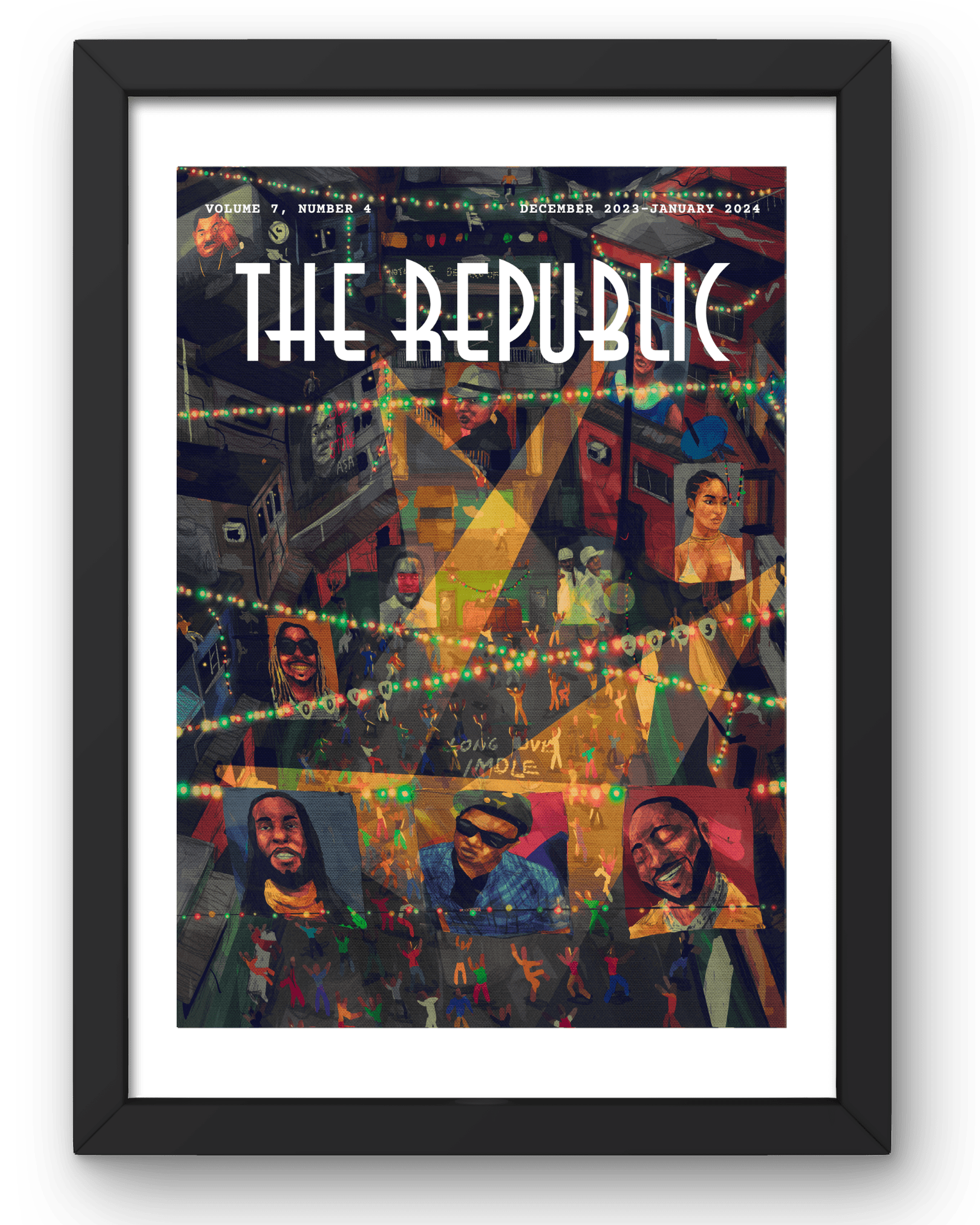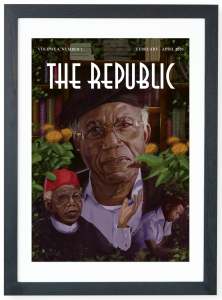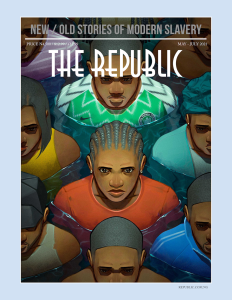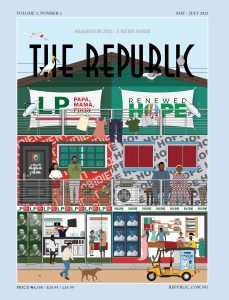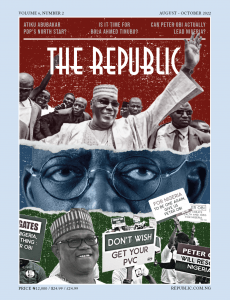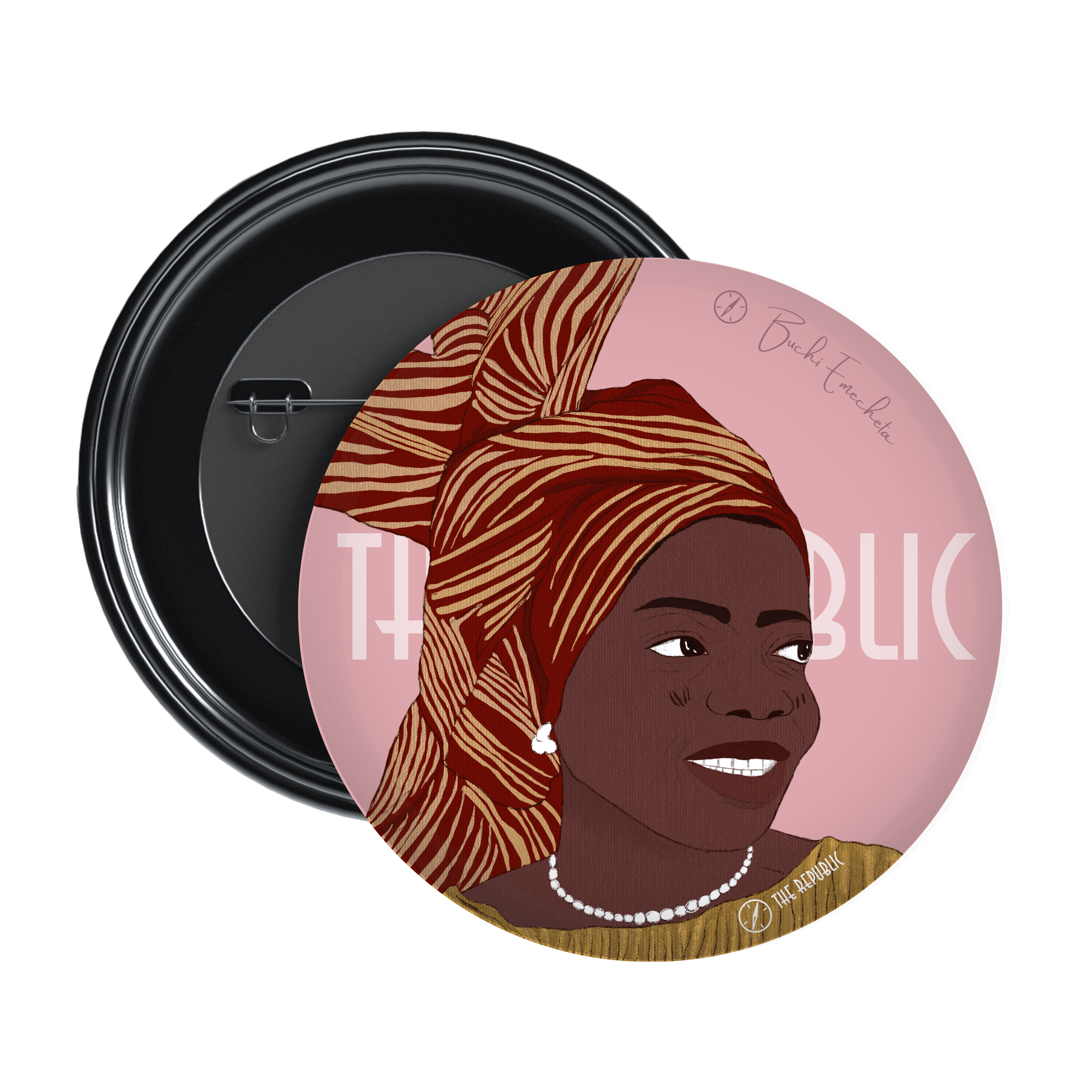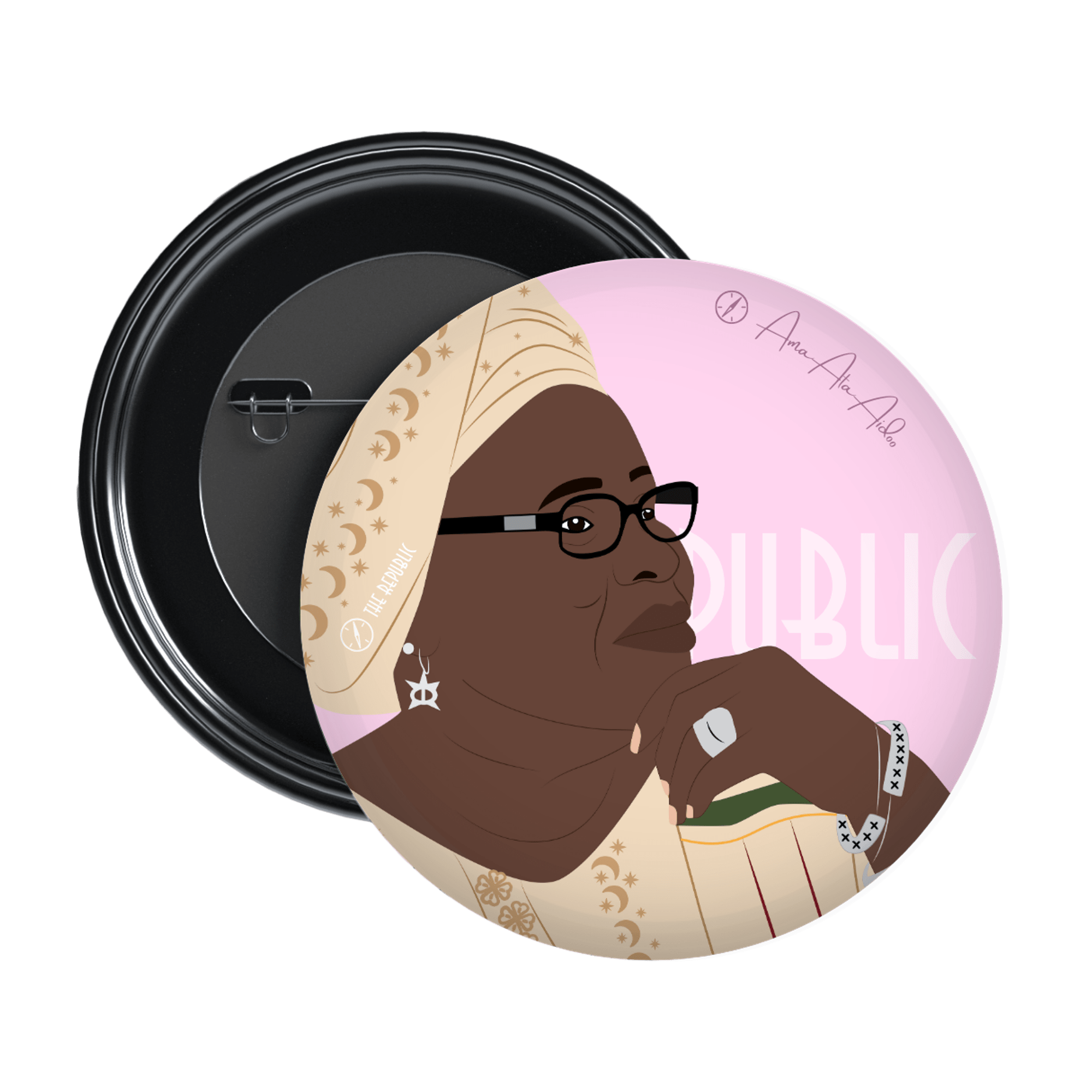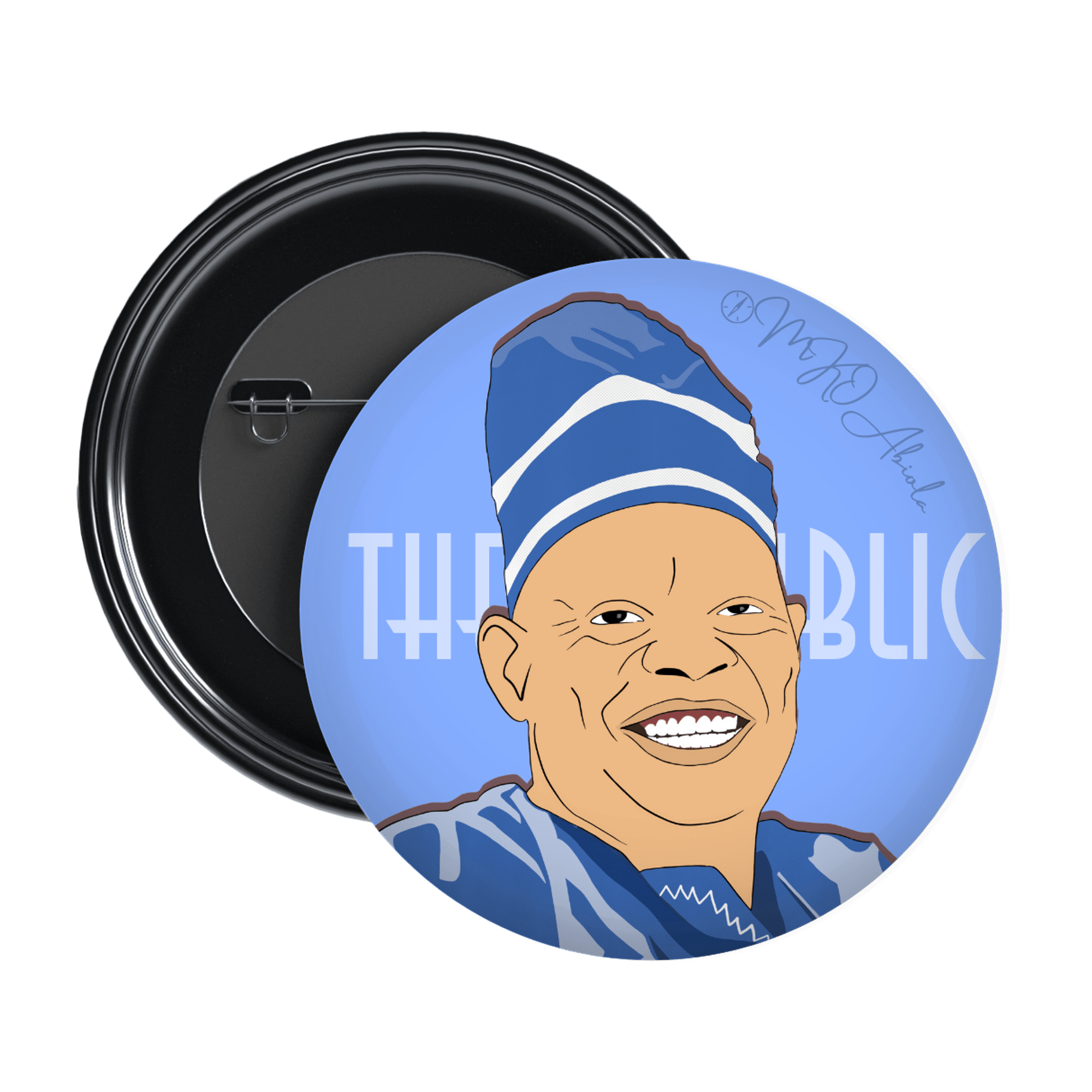
Salute from a National Youth Service Corp Member. Photo Illustration by Dami Mojid. Photo Ref: Inside NYSC Lagos / INSTAGRAM.
the ministry of CULTURAL AFFAIRS
End NYSC Already

Salute from a National Youth Service Corp Member. Photo Illustration by Dami Mojid. Photo Ref: Inside NYSC Lagos / INSTAGRAM.
the ministry of CULTURAL AFFAIRS
End NYSC Already
In March 1983, the Black Sash, a South African human rights organization, passed a motion at its annual conference demanding that the South African government abolish all conscription for military service. South Africa’s ‘Defense Amendment Bill’ of June 1967 had made service in the South African Defence Force (SADF) mandatory for young, white South African men for up to two years. The Black Sash’s motion at its annual conference advocated ‘conscientious objection’ to national military service under the aegis ‘End Conscription Campaign’ (ECC); this advocacy drive was part of a broader consciousness in South Africa against armed conscription which began in the early 1980s. In defence of the government’s position over compulsory conscription, Magnus Malan, Minister of Defence in P.W Botha’s apartheid cabinet of 1988 derided the male ECC supporters as ‘mommy’s little boys’ who were scared of masculinity and warfare.
South Africa eventually severed its coarse link between national service and civilian life through a constitutional amendment in 1996. Nigeria, however, still maintains a softer, but no less punitive, drafting system. Through the National Youth Service Corps (NYSC), a national programme set up in 1973 following the dark struggles of the Nigerian civil war, many Nigerian graduates have to travel to far-flung locations to engage for a year in paramilitary training and ‘community development service’ as a conciliatory post-war effort towards nation building. The objective of the programme is to promote national unity and integration, and the system has been described by former President Muhammadu Buhari as one of Nigeria’s
…strongest ideals of nation building, institutionally encouraging inter-cultural and inter-religious marriages, resettling of people of various tribes in different parts of the country, exploration of entrepreneurship and business opportunities in places, removing insularity among citizens, and enabling a new culture of oneness, brotherliness and neighbourliness.
A perceptive observer will be negligent in failing to decipher the true intent of the NYSC programme, contrary to the former president’s assertion. At the heart of the scheme is governmental paranoia from the blood and gore of the Nigerian civil war being expressed through a pedestrian initiative designed to entrench otherwise inspired young Nigerians with the repugnant ideology of servitude. The programme’s anthem calls Nigeria’s youths to serve the country ‘under the sun or in the rain’, as diametrically opposed to a national call to arms where Nigerian youths see their country as one to fully love, embrace and eventually lead.
DRAFT PROGRAMMES: POETIC THEORY VS PROSAIC REALITY
National governments often declare pacifist goals of instilling in youths a sense of responsibility and patriotism as the official objective of youth draft programmes like NYSC. However, involvement in these programmes only ends up traumatizing many participants. Under South Africa’s conscription system, a growing number of young white men who were worn out by the war-mongering tendencies of the apartheid government sought to avoid conscription by attempting suicide, fleeing the country, hiding within the country, or becoming conscientious objectors. A total of 260 white, male South African conscripts attempted suicide in 1986 while in the SADF camps; more than 2,000 young white professional men also left the country during the year. A 1987 survey conducted of all male students at South Africa’s Rhodes University found that 55 per cent were contemplating emigrating from the country due to national conscription.
For Nigerian youths, the deathly effects of national conscription in the form of a youth service programme are no less dissimilar. Political rioters attacked and killed more than seven youth corps members in Bauchi State, following dissatisfaction with the result of the 17 April presidential election of 2011 (even after the victims sought refuge in a police station). Additionally, more than 40 corps members in Nigeria have died in avoidable mishaps since 2019 while travelling across Nigeria’s tiresome roads on the back of mandatory federal call-ups. Eight prospective corps members were kidnapped in August 2023 after which they spent more than 100 days in captivity. Conversely, endemic corruption has risen as the graduates meant to uphold national ethical tenets now pay bribes to totally avoid the programme or to get a posting to safer states amidst Nigeria’s growing insecurity challenges. Some prospective corps members present fake certificates and medical documents in order to get mobilized to favourable places for primary assignments while some others simply induce NYSC officials with cash and gift items so they can return home and show up only for monthly clearances. In a 2021 interview with Al Jazeera, Kelechi, an ardent Nigerian graduate who joined the NYSC because of the potential for better employment prospects, confessed that the programme has only left him with post-traumatic stress disorder.
shop the republic
THE CHEQUERED ROAD TO NATIONAL YOUTH SERVICE
Conscription is an old practice and has taken many forms around the world, the most common being a ‘universal service’ requirement, where a set of the population is expected to serve a stint in the armed forces or in a national corps. Some countries that currently maintain national service programs include Israel, Eritrea, Morocco, and North Korea.
In the 1900s, conscription through mandatory military service was popular because it helped to form the basis of a powerful military while purportedly promoting active citizenship and stronger social ties across socioeconomic divides. However, national commentators have argued that extended national service programmes during periods of truce violate human rights and liberalism on multiple fronts by subjecting youths to outdated notions of national serfdom through military drills and community development activities that are not paramount. It is for this reason that the popularity of national service programmes has been on a steady decline. Six out of 10 participants in a 2023 YouGov survey in the UK opposed compulsory, military and yearly national service; 21 of the 27 European Union nations have also abolished conscription as of writing. In 2019, a federal court in the United States ruled that the country’s male-only draft system was unconstitutional, a judgement that underscores the human rights deficiencies often implicit in the setup of national draft systems.
For Nigeria, Section 2 (1) of the National Youth Service Corps Act (2004) mandates all Nigerians to make themselves available for a continuous period of one year for national youth service if they have graduated from any university in Nigeria or outside Nigeria except where such person is over the age of 30 or has served in the armed forces of the federation. A bill to amend Section 2 of the Act and to make National Service in Nigeria optional rather than compulsory for Nigerian graduates under 30 years was opposed by a majority of the members of the Nigerian House of Representatives in January 2023. Section 315 (5) of Nigeria’s 1999 Constitution also recognizes the inviolability of the National Youth Service Corps Decree (1993), irrespective of any provision of the Constitution.
To make the NYSC programme optional or to alter its operation in any way, the procedures laid down in Section 9 (2) of the 1999 Constitution will have to be followed; this is because the NYSC enabling act is written into the Constitution. Any such proposal to amend the NYSC programme will have to be supported by no less than a two-thirds majority of either the House of Representatives or the Nigerian Senate; the proposal will also have to be approved by a resolution of the Houses of the Assembly of not less than two-thirds of the 36 states of the federation.
The recognition of the NYSC decree by the Nigerian constitution explains clearly the importance of the programme to the drafters of the Nigerian constitution. Still, this situation only portrays the tenuous position of the NYSC programme as a Nigerian military reservoir force should the occasion arise. In 2023, there were fabricated suggestions that youth corps members would be deployed as part of an ECOWAS mission to restore democracy in Niger, but this was not before some recommendations that the NYSC service year should be converted to a full military service year. Regardless, the oversized role that the NYSC institution already plays in the maintenance of Nigerian national unity cannot be discounted: the Independent National Electoral Commission (INEC) deployed over 200,000 corps members as ‘ad-hoc’ staff in the 2023 general elections, for instance.
shop the republic
THE HEAVY COST OF YOUTH ORIENTATION THE HEAVY COST OF YOUTH ORIENTATION
For the Nigerian political elite, there remains a belief that a sense of patriotism and nationalism can only be advanced in youths through servitude to the country in the form of paramilitary and community development training. At the launch of the NYSC ICT Centre in May 2023, Nigeria’s former Head of State, General Yakubu Gowon, stated that he established NYSC to foster the unity and peaceful coexistence of Nigeria at a point when the country was just recovering from a civil war and was at a low ebb. To this end, advocates of the programme back up the veracity of the scheme by touting instances of inter-ethnic marriages, community and entrepreneurship development that have been made possible through participation in the programme. Other proponents of the programme argue that it provides educationally less-developed areas in Nigeria with the opportunity of having young university graduates as teachers while it also helps to plug the manpower gaps of the Nigerian electoral commission during election periods.
Yet, compulsory youth paramilitary and community development service during peacetime only constitute a drain on Nigeria’s meagre economic resources. The Guardian estimates that between 2020 and 2023, the federal government of Nigeria paid out over ₦475 billion as monthly stipends to more than 300,000 corps members annually. BudgIT records also confirm that the government defrayed more than ₦520 billion to cover the programme between 2016 and 2020. Back of the napkin calculation suggests that the scheme will consume nearly ₦3 trillion over the next five years. For a mono-product economy with a falling currency, double-digit inflation, a paltry savings account and dwindling critical infrastructure, NYSC comes at a draining financial cost for national youth orientation, no?
shop the republic
NYSC: END TO CONSCRIPTION
Whichever way one looks at it, Nigeria’s NYSC programme is no longer sustainable. While a significant percentage of Nigerian youths disapprove of the scheme because of its operational deficiencies, the programme itself costs the country an arm and a leg. What’s worse, the venture is at the mercy of multifarious interpretations due to the constitutional backing it enjoys; and it would appear that shorthanded federal agencies and employers like INEC are over reliant on the scheme because of the cheap labour it provides.
Given the facts, it would seem that young Nigerians are currently at the mercy of the Nigerian society under the guise of national service, even if such service only lasts a year. The unconscionable use of youths by many employers across various strata of Nigerian national life often runs afoul of labour laws and multiple human rights obligations. Contrarily, Nigeria itself could surely do better by redirecting the funds it sinks into the NYSC programme towards the development of critical national projects across healthcare, education, infrastructure and even a stronger, proper military force.
More broadly, a lasting remedy to the malaise will be for Nigeria to realign its goals towards the urgent promotion of national security, welfare, tourism and a broad-based academic curriculum under the auspices of a worldview of youth inclusiveness in the rapid global digital interconnectivity of things. Indeed, through a safe national environment where youths can grow, learn and prosper, national unity soon becomes achievable, and the martial ‘boots-on-the-ground’ approach to every facet of national security and welfare can be eventually phased out⎈




